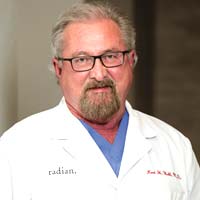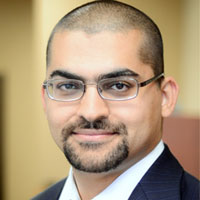Hair transplants can cure migraines
When Wayne
Rooney received care
transplants he and his family assumed that it would only bring about cosmetic
benefits the research on Rooney and several other hair transplant recipients
has suggested that after hair transplants a number of individuals were able to
go without pain relieving medication for their migraines.
The reason
for this improvement comes as a result of the surgery which is required for hair
transplants. There transplant surgery may actually destroy the nerve
endings within the scalp and as a result of this it can reduce pain signals
over time.
With the
£30,000 procedure that Wayne Rooney had in the year 2011, he has noticed a huge
decrease in the amount of headaches and other previous symptoms that he
experienced even at 25 years old.
Researchers
from the SO EP aesthetic and plastic surgery clinic in Turkey
have checked out six different patients who all suffered from migraines
undergoing surgery between 2011 and 2012. Most of these patients experienced a
migraine headache around six days of the month with pain lasting for around
four hours. Almost every one of these
patients had some type of pain relieving medication to combat their symptoms.
The intensity of the pain the day experienced was significantly reduced after
hair transplant surgery and in most cases the patients that were monitored
never had to use pain relieving medication for their migraines again.
What this
could mean for the future is that hair plantation in migraine patients who are bald
could be seen as an excellent alternative to traditional migraine treatment.
While more
study is still required on the idea of hair transplants during migraines, if
the idea of a simple hair transplant is all that a patient could require to be
migraine free, this would list headache relief amongst another huge benefit
of hair transplant surgery.
Hairfear
Frequently asked questions about hair transplant procedures
How much does a hair transplant cost?
Hair transplants can vary in price based off of the area in the world that you are interested in getting a hair transplant as well as the size of the area where you may need a hair transplant. Experienced doctors in the United States will often charge some of the highest prices for a hair transplant worldwide and this is why so many travelers make the move to other parts the world like Turkey, India, Thailand, Mexico...etc for their hair transplants.
Will a hair transplant hurt?
Although hair transplants may look like a particularly
unpleasant or painful experience is actually very little discomfort involved
with the surgery itself. Hair transplants are always done under an anesthetic so there's absolutely zero pain during the treatment itself. Many people actually relate the process as being very similar to going to the dentist for filling or root canal. Mild pain can persist over the course of postop treatment but he generally just resumes for a few days.
Who can deliver the best surgery?
It's usually best to consider working with surgeons who have and IAHRS certification or international alliance of hair restoration surgeons recognition. IAHRS can often deliver recommendations for the best surgeons in each particular area.
Is this scarring noticeable?
Any type of hair transplant will require the use of incisions throughout the scalp. There can also sometimes be a small scar from the donor area towards the back of the scalp. Asking to look at photos of the surgeon's previous work will help you to see roughly how bad the scarring could be. In most cases an experienced professional can limit the look of scarring and noticeable marks from the surgery.
How long does it take for the hair to grow?
In most cases hair growth will start within eight months and you can start to see a full effect from the hair transplant after a full year. The initial signs of growth can usually start between 3 to 4 months after the surgery.
Are the results permanent?
The hair follicles that are transplanted are generally the ones which are genetically resistant against the symptoms of baldness. As long as you receive hair loss treatment later in your life after the symptoms of balding have started to subside, you can have a better chance at permanent results.
While everyone know you've had surgery?
If you want to limit the chance that people may find out about your surgery it's important to give at least three weeks of healing as the surgical area will be affected and red just after surgery. After around a month of healing it can look far less noticeable. You could consider wearing a hat while time passes or opting for some extra time off if possible.
How long should I rest after surgery?
It's recommended to rest for at least a few days after surgery so that your body can recover. Trenton to over exert yourself and limit sexual activity, running in the gym for around 10 days after surgery.
Is it possible to lose more hair as a result of surgery?
There is always a chance of shock loss which happens when the hair is weak and miniaturizing after the surgery. As long as the surgeon is choosing the correct hair follicles and performing the surgery well it's possible to minimize the chance of this happening however.
Will I need another hair transplant?
The need for another transplant really depends on the individual. With a solid foundation surgery and working to potentially bolster results with drug therapy, you can improve the stability of the hair that was transplanted as well as prevent further loss. Getting a hair transplant early
on in your 20s or early on in life could lead to needing long-term transplants as hair loss can be progressive.







